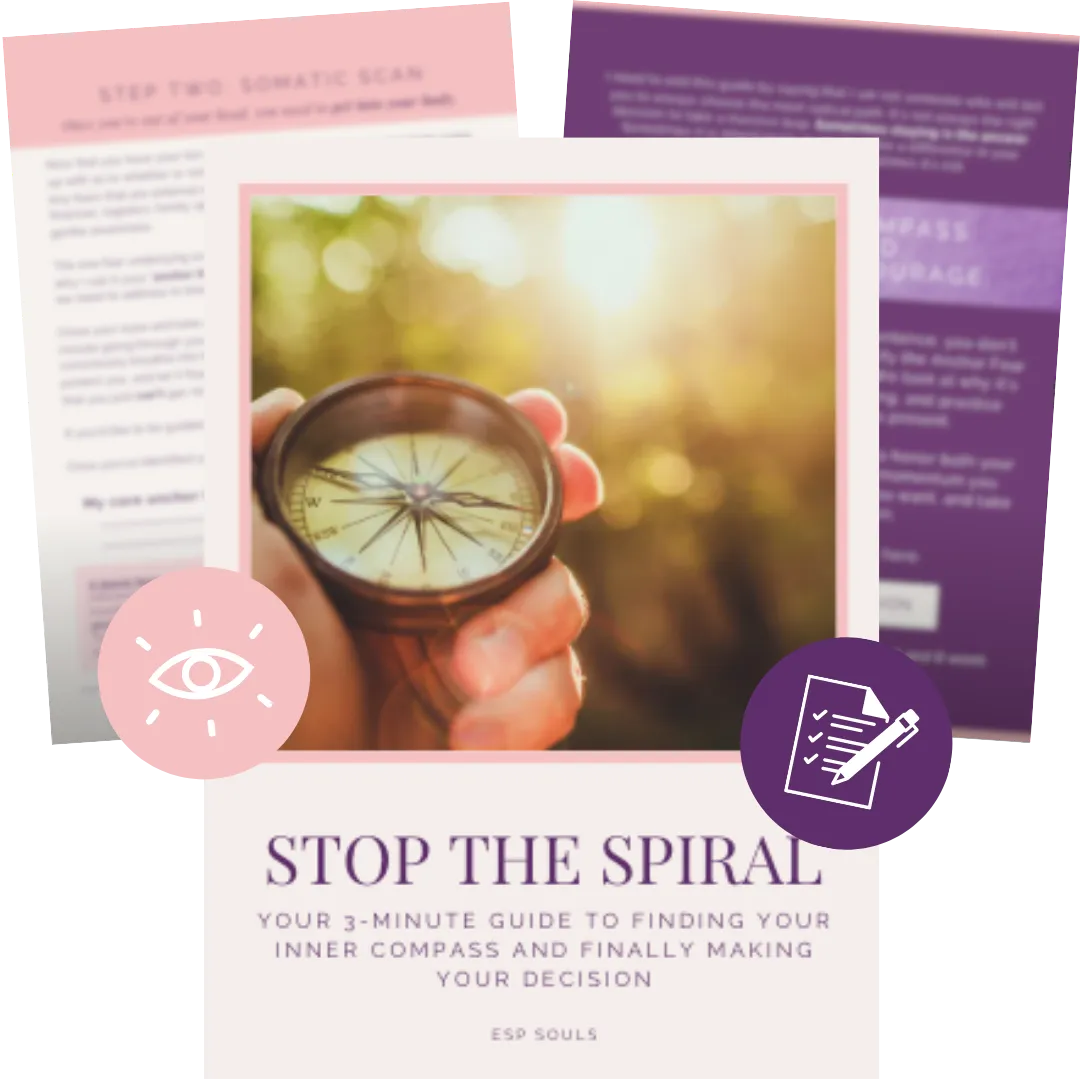
Stop Polling Your Friends - How to Start Trusting Your Own Decisions
Life can bring us some pretty gnarly decisions. It can feel like you’re between a rock and a hard place. Standing on the edge of a decision – something real, something important. But instead of turning inward, discovering the answer within yourself, you reach outward.
You call your best friend. You open the group chat. You bring it up over coffee with friend after friend. You type it all into ChatGPT (who, let’s be honest, has become like a friend lately!).
You lay it all out like a case file. All of the details so that they have the full picture. Pros. Cons. The timeline. The emotional backstory.
“Do I stay? Do I go? Do I say yes to this job / date / house / healing path?”
And then the replies roll in:
“Well, if it were me…”
“I just don’t want you to regret it.”
“You’re overthinking it. Just decide!”
By the end of it, you have six different answers, you feel more confused than ever, and the decision still lives rent-free in your head.
So why do we keep doing this?
Here’s the thing: you're not looking for their answers.
You're looking for permission to trust your own.
Polling your friends is often just a distraction — a socially acceptable way to avoid sitting with your inner knowing (especially when it says something inconvenient, uncomfortable, or unfamiliar).
And if you’ve been a lifelong people-pleaser? Your nervous system is trained to find safety in external consensus. Notice who you seek out – are you searching for someone to give you an answer that feels like permission to do what you deep down want to do? Or are you hoping they tell you to do the opposite – so that you have an excuse and don’t have to be brave and follow your heart, you can just stay in your comfort zone?
Validation feels like clarity. Agreement feels like truth.
But it’s not.
Every time you override your own truth in favour of someone else’s “logic,” you chip away at your self-trust.
You get stuck in loops.
You doubt what you feel.
You make “safe” choices — then secretly resent them. Or replay the decision in your mind, over and over, wondering if it really was the right choice.
You wait for signs, and opinions, and certainty that never quite come.
And worst of all?
Even when you follow someone else’s advice… if it goes sideways, you still blame yourself.
So, what’s the alternative?
Self-trust doesn’t magically appear — especially if you’ve been trained to second-guess yourself. The more you outsource, the more you rely on the external noise.
But here’s how we start to build it:
1. Pause before you ask.
Before you send the message or start the “what would you do?” convo, ask:
Have I actually sat with my own feelings yet?
If not, pause. You deserve your own perspective first.
2. Ask better questions.
Instead of “What should I do?”, try:
What am I afraid will happen if I choose what I actually want?
If no one else had an opinion, what would I choose?
What’s the most self-honouring decision here?
If it wasn’t going to impact anyone else, what would you choose?
3. Let it be imperfect.
There’s no perfect decision. Just decisions that lead to the next right step. Let it be messy. Let it be honest. Let it be yours.
The only wrong decision is not making one.
4. Notice what your body says.
Your intuition often speaks in sensation. Tightness? Nausea? Lightness? Energy drop? Your body knows. Tune in. A great way to do this is spend some time journalling and pay attention to what happens in your body as you’re writing. You’ll find nuggets of wisdom there.
You don’t need a committee to approve your truth. You don’t need everyone to agree with your path. You don’t even need a single person to say they would choose the same thing. If they’re your people, they’ll be in your corner no matter what.
You just need a little courage — and a lot of compassion — as you practice choosing yourself again and again.
And if you’re rebuilding self-trust after years of self-abandonment, know this:
It’s not too late.
You can find true self-trust.
And you’re more capable than you think. It just takes a little practice.
[Building self-trust takes work, but we can do it together. Start your Soul-Led Therapy journey here]



